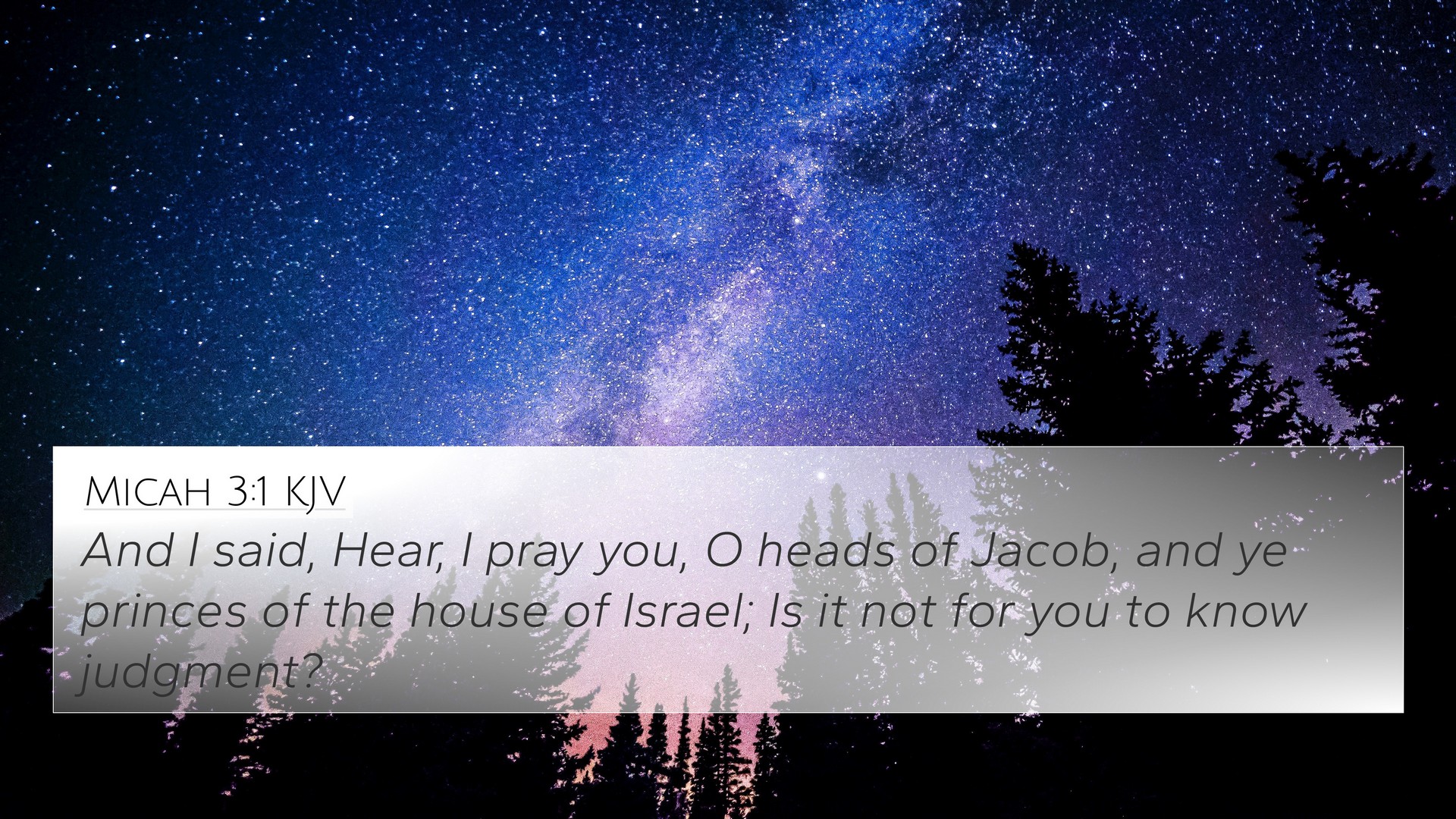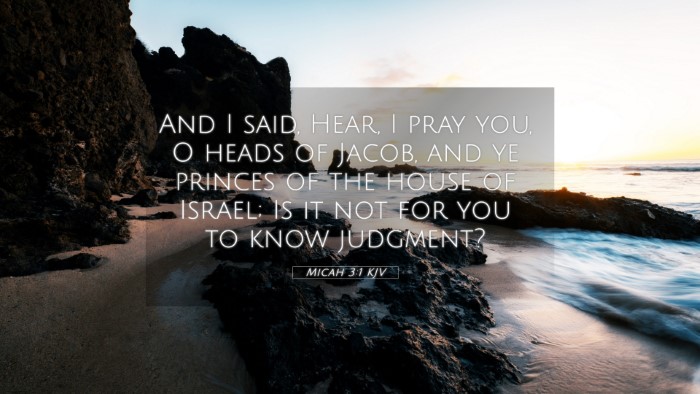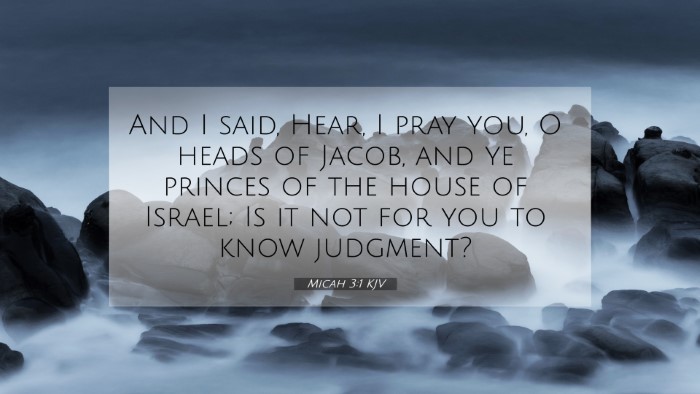Old Testament
Genesis Exodus Leviticus Numbers Deuteronomy Joshua Judges Ruth 1 Samuel 2 Samuel 1 Kings 2 Kings 1 Chronicles 2 Chronicles Ezra Nehemiah Esther Job Psalms Proverbs Ecclesiastes Song of Solomon Isaiah Jeremiah Lamentations Ezekiel Daniel Hosea Joel Amos Obadiah Jonah Micah Nahum Habakkuk Zephaniah Haggai Zechariah MalachiMicah 3:1 Similar Verses
Micah 3:1 Cross References
And I said, Hear, I pray you, O heads of Jacob, and ye princes of the house of Israel; Is it not for you to know judgment?
Uncover the Rich Themes and Topics of This Bible Verse
Listed below are the Bible themes associated with Micah 3:1. We invite you to explore each theme to gain deeper insights into the Scriptures.
Micah 3:1 Cross Reference Verses
This section features a detailed cross-reference designed to enrich your understanding of the Scriptures. Below, you will find carefully selected verses that echo the themes and teachings related to Micah 3:1 KJV. Click on any image to explore detailed analyses of related Bible verses and uncover deeper theological insights.
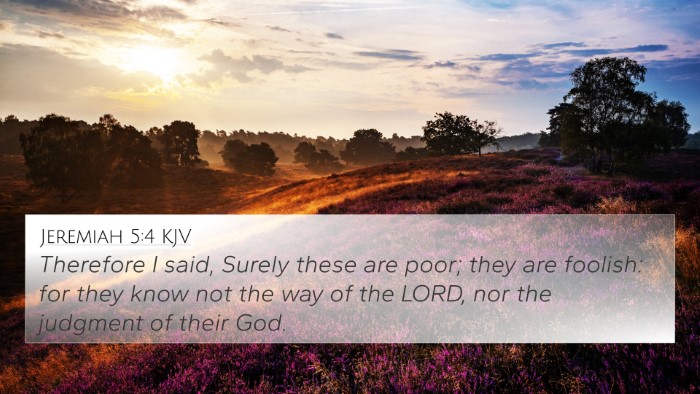
Jeremiah 5:4 (KJV) »
Therefore I said, Surely these are poor; they are foolish: for they know not the way of the LORD, nor the judgment of their God.
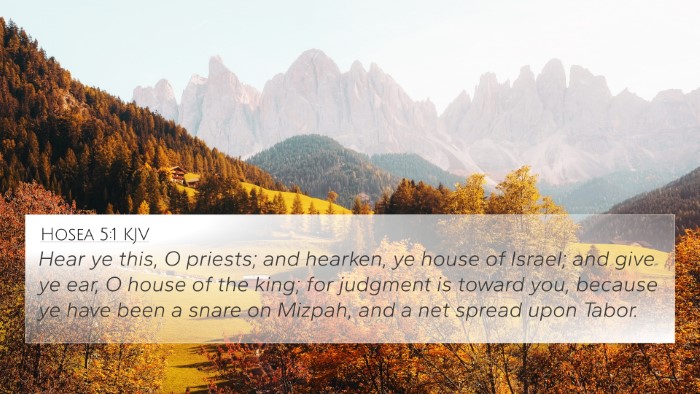
Hosea 5:1 (KJV) »
Hear ye this, O priests; and hearken, ye house of Israel; and give ye ear, O house of the king; for judgment is toward you, because ye have been a snare on Mizpah, and a net spread upon Tabor.
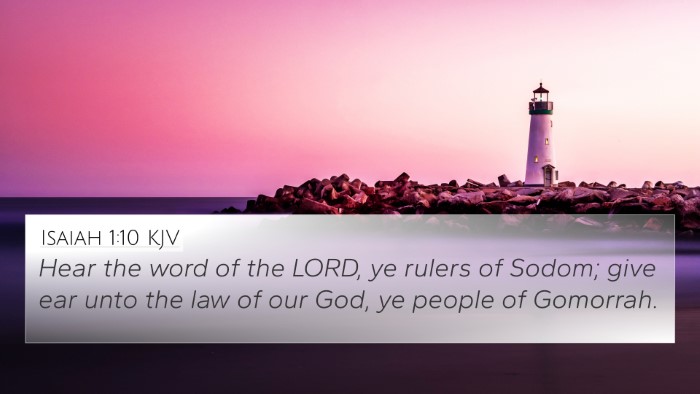
Isaiah 1:10 (KJV) »
Hear the word of the LORD, ye rulers of Sodom; give ear unto the law of our God, ye people of Gomorrah.
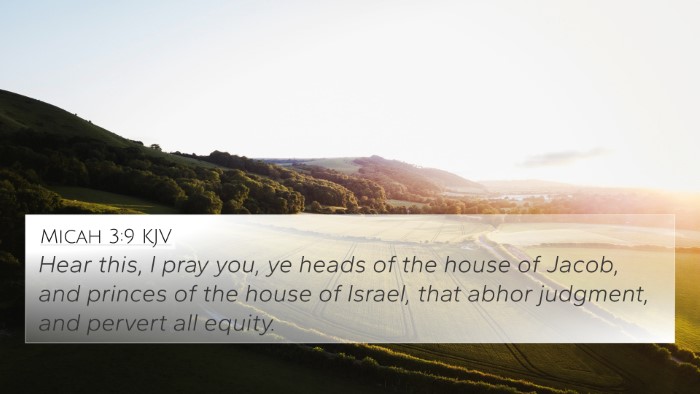
Micah 3:9 (KJV) »
Hear this, I pray you, ye heads of the house of Jacob, and princes of the house of Israel, that abhor judgment, and pervert all equity.
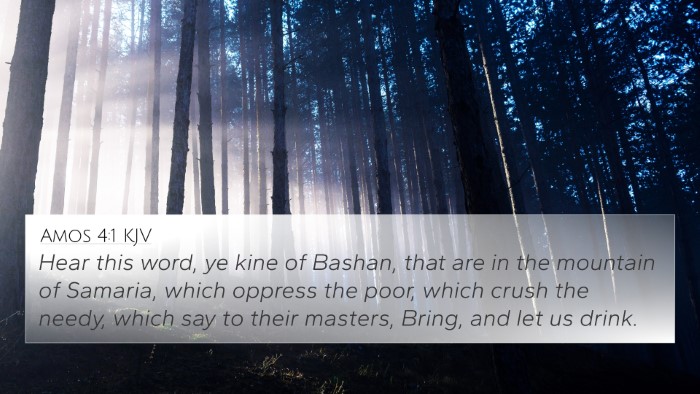
Amos 4:1 (KJV) »
Hear this word, ye kine of Bashan, that are in the mountain of Samaria, which oppress the poor, which crush the needy, which say to their masters, Bring, and let us drink.
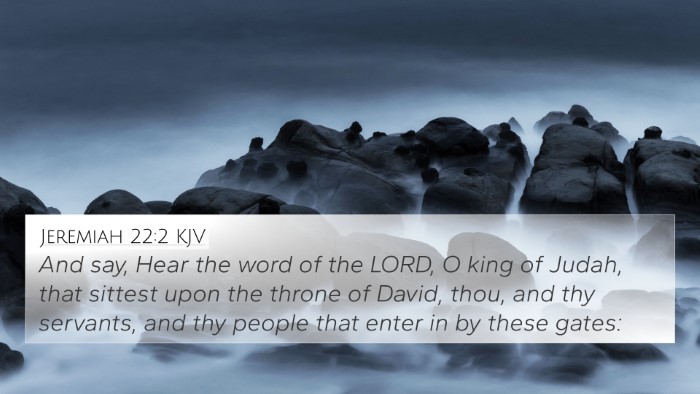
Jeremiah 22:2 (KJV) »
And say, Hear the word of the LORD, O king of Judah, that sittest upon the throne of David, thou, and thy servants, and thy people that enter in by these gates:

Deuteronomy 1:13 (KJV) »
Take you wise men, and understanding, and known among your tribes, and I will make them rulers over you.
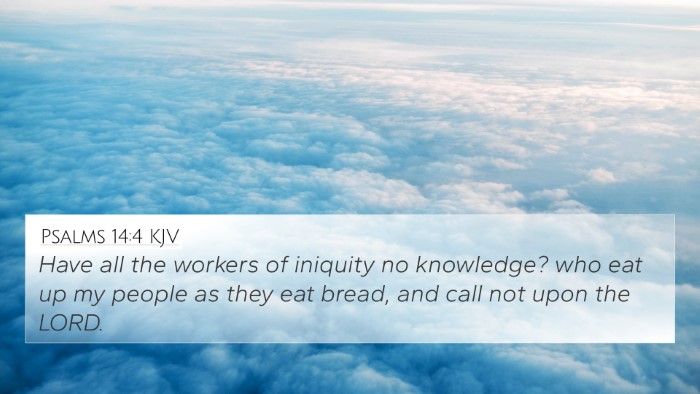
Psalms 14:4 (KJV) »
Have all the workers of iniquity no knowledge? who eat up my people as they eat bread, and call not upon the LORD.
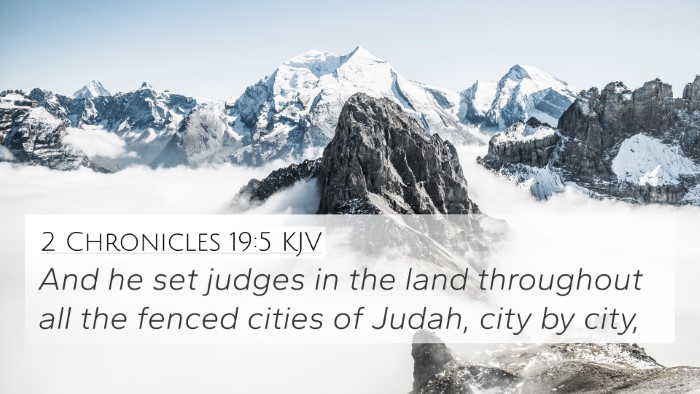
2 Chronicles 19:5 (KJV) »
And he set judges in the land throughout all the fenced cities of Judah, city by city,
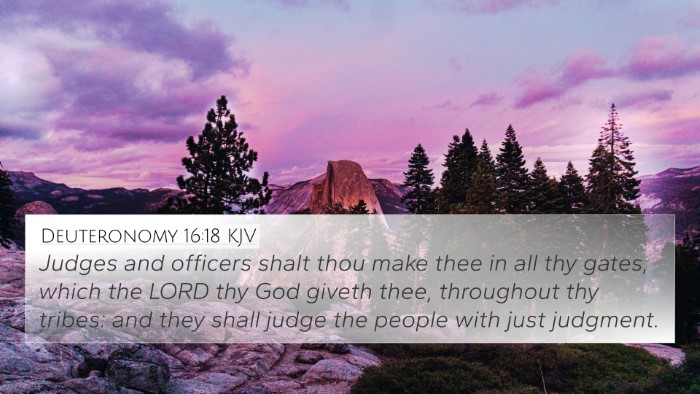
Deuteronomy 16:18 (KJV) »
Judges and officers shalt thou make thee in all thy gates, which the LORD thy God giveth thee, throughout thy tribes: and they shall judge the people with just judgment.
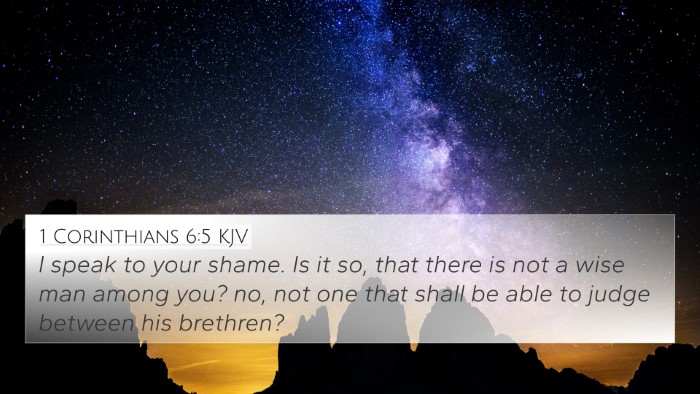
1 Corinthians 6:5 (KJV) »
I speak to your shame. Is it so, that there is not a wise man among you? no, not one that shall be able to judge between his brethren?
Micah 3:1 Verse Analysis and Similar Verses
Meaning and Interpretation of Micah 3:1
Micah 3:1 is a poignant call from the prophet Micah, addressed to the leaders of Israel. In this verse, Micah questions the rulers about their role and responsibility: "And I said, Hear, I pray you, O heads of Jacob, and ye princes of the house of Israel; Is it not for you to know judgment?" This inquiry points to the expectation that leaders should be knowledgeable about justice and governance, reflecting God's character and commandments.
Contextual Background
Understanding the context of Micah is crucial. Micah prophesied during a time of moral decay and social injustice prevalent in Israel. The leaders, including priests and prophets, were failing to uphold justice and righteousness, leading the people astray from the ways of God.
Commentary Insights
Commentaries by Matthew Henry, Albert Barnes, and Adam Clarke provide layered interpretations of this scripture:
- Matthew Henry highlights the failure of leaders to execute justice, indicating their ignorance of their divine responsibilities. He emphasizes that true leaders are expected not just to rule, but to lead the people in understanding and executing the law of God.
- Albert Barnes points out that Micah's address to the "heads of Jacob" serves as a reminder that those in positions of authority are accountable to God for their actions. They are admonished to prioritize fairness and righteousness in their judgments.
- Adam Clarke discusses the urgency in Micah's words, stressing that the leaders’ lack of understanding of moral law leads to widespread corruption among the people. Clarke suggests that Micah’s appeal seeks to awaken conscience and moral responsibility in the leaders.
Thematic Connections
This verse interlinks with various themes found throughout the Bible:
- Justice: Micah 6:8, which highlights God's requirements for justice, mercy, and humility.
- Corruption of Leadership: Ezekiel 34:2-4 addresses the shepherds of Israel who fail to care for their flocks.
- Accountability of Leaders: James 3:1 emphasizes that those who teach will be judged more strictly.
- Divine Expectation: Isaiah 1:17 calls for learning to do good and seeking justice.
- Moral Responsibility: Proverbs 29:2 expresses that when the righteous rule, the people rejoice, but when the wicked rule, they mourn.
- Hope and Redemption: Jeremiah 22:3 underscores the importance of executing justice and righteousness for the deliverance of the people.
- God’s Judgment: Zephaniah 3:3 speaks of the rulers within the city being her wicked, committing injustices.
Cross-References
Micah 3:1 connects significantly with several other verses, providing deeper insight into its meaning:
- Deuteronomy 16:18 - Appoints judges and officers in all cities to judge righteously.
- Psalm 82:2 - Questions whether judges are upholding justice.
- Matthew 23:23 - Jesus rebukes the Pharisees for neglecting justice and mercy.
- Luke 12:48 - Stresses accountability in relation to knowledge of God's will.
- Romans 13:3 - Discusses rulers being a terror to evil doers, implying the need for justice.
- 1 Peter 5:2 - Encourages shepherds to care for their flock willingly, not by compulsion.
- Jeremiah 22:15-16 - A reminder that true kings should execute judgment and righteousness.
Tools for Bible Cross-Referencing
For a comprehensive understanding of the connections between different Bible verses, utilizing tools such as:
- Bible Concordance: An index of keywords that helps locate verses across the Scriptures.
- Bible Cross-Reference Guide: Guides that highlight connections between verses thematically or contextually.
- Bible Chain References: Systems that link related verses together for study.
- Comprehensive Bible Cross-Reference Materials: A collection of resources for deeper scriptural analysis and understanding.
Interpreting Biblical Themes through Cross-References
In concluding this exploration of Micah 3:1, the importance of understanding the responsibilities of leadership lays a foundation for examining broader themes of justice, accountability, and divine expectation throughout the Bible. Engaging with cross-referenced verses enriches the study, unveiling the interconnectedness of Scripture and enhancing one's understanding of God's heart for justice.
